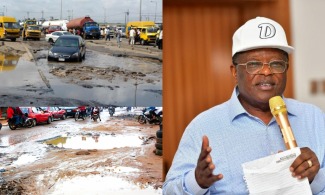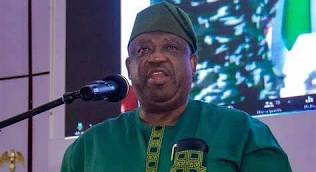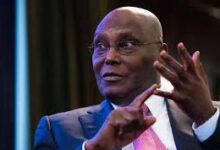“I feel frustrated fixing Nigerian roads” Umahi Decries

Minister of Works Senator David Umahi has declared the government’s N827 billion road budget for 2025 severely inadequate, painting a sobering picture of the nation’s infrastructure crisis.
During Friday’s Senate Committee on Works 2025 budget defense session in Abuja, Umahi disclosed that President Bola Tinubu’s administration inherited a staggering 2,064 road projects valued at N13 trillion. This figure has since ballooned to an estimated N18 trillion due to escalating costs.
“I’ve succeeded in most of my life’s engagements, but I feel frustrated fixing Nigerian roads with these meager allocations,” Umahi admitted, in an unusually candid moment for a federal minister.
The funding shortfall presents a critical challenge for Nigeria’s economic development. Industry experts note that robust road infrastructure is fundamental to poverty reduction and economic growth, serving as arteries for commerce and job creation.
“Roads are critical to economic growth and poverty reduction,” Umahi emphasized. “They create jobs and drive economic activities. However, fixing these roads cannot be achieved with yearly budget provisions alone.
The Works Minister’s frustration reflects a broader crisis in infrastructure funding. According to the African Development Bank’s 2023 infrastructure report, Nigeria requires approximately $3 trillion in infrastructure investment over the next 30 years to bridge its infrastructure gap.@
Senator Mpigi Barinaga, leading the Senate Committee on Works, praised Umahi’s efficient resource management while acknowledging the necessity for alternative funding mechanisms. The committee’s support signals a potential shift toward more innovative financing solutions.
Umahi urged public support for President Tinubu’s borrowing initiatives, arguing that such investments would stimulate economic activities and address poverty.
“Every naira invested in road infrastructure translates to improved living conditions for our citizens,” he stated.
The session concluded with a unanimous agreement on exploring additional funding options, including public-private partnerships and infrastructure bonds, to address Nigeria’s mounting road infrastructure needs.
For Nigeria’s 200 million citizens, the resolution of this funding crisis could mean the difference between continued infrastructure decay and a path toward sustainable economic growth.





